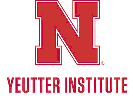Yeutter Institute of International Trade and Finance

Yeutter Institute Publications
Date of this Version
2021
Document Type
Article
Abstract
U.S. foreign policy has not come up often in the 2020 presidential campaign. But when it has, candidates on both sides of the aisle frequently have stressed that U.S. foreign policy should not only keep the American people safe but also deliver more tangible economic benefits for the country’s middle class. The debate among the presidential contenders is not if that should happen but how to make it happen. All too often, this debate takes place within relatively small circles within Washington, DC, without the benefit of input from state and local officials, small business owners, community leaders, local labor representatives, and others on the front lines of addressing the challenges facing middle-class households. That is why the Carnegie Endowment for International Peace convened a bipartisan task force in late 2017 to lift up such voices and inject them into the ongoing debate. The task force partnered with university researchers to study the perceived and measurable economic effects of U.S. foreign policy on three politically and economically different states in the nation’s heartland—Colorado, Nebraska, and Ohio. The first two reports on Ohio and Colorado were published in December 2018 and November 2019, respectively. This third report on Nebraska has been prepared in partnership with a team of researchers at the University of Nebraska–Lincoln (UNL). To gauge perceptions of how Nebraska’s middle class is faring and the ways in which U.S. foreign policy might fit in, the Carnegie and UNL research teams reviewed household surveys and conducted individual interviews and focus groups, between July and August 2019, with over 130 Nebraskans in Columbus, Scottsbluff/Gering, Kearney, Lincoln, North Platte, and Omaha. While those interviewed expressed many different opinions on a broad range of topics, several opinions were repeated often in rural and urban areas alike, in strikingly similar terms.
Top Middle-Class Concerns • Trade and the Agricultural Production Complex • Immigration and Refugees • Defense • Climate Change, Energy, and Transportation • Foreign Aid • Comparing Nebraska, Colorado, and Ohio • Appendix A: List of Interviewees • Appendix B: Extended Methodology • Appendix C: Nebraska’s Economy and Workforce • Appendix D: Trade in Nebraska • Appendix E: Cost of Trade Barriers to Nebraska’s Consumers • About the Authors • Carnegie Endowment for International Peace 1 • University of Nebraska-Lincoln • Bureau of Business Research • University of Nebraska-Lincoln Clayton Yeutter Institute of International Trade and Finance • University of Nebraska Public Policy Center
Contributors: Tarik Abdel-Monem • Wendy Cutler • Rozlyn Engel • David Gordon • Jennifer Harris • Douglas Lute • Jill O’Donnell • Daniel M. Price • David Rosenbaum • Christopher Smart • Jake Sullivan • Ashley J. Tellis • Eric Thompson • Janell C. Walther • Tom Wyler
Included in
Defense and Security Studies Commons, International Relations Commons, Peace and Conflict Studies Commons


Comments
© 2020 University of Nebraska-Lincoln and Carnegie Endowment for International Peace